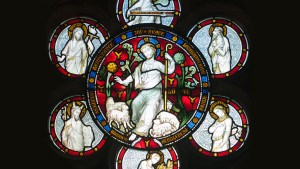If there’s one virtue that’s essential to renewing today’s Church, it’s longanimity. At least that’s the case made in an unforgettable new book, The Prodigal Church.
Most of us haven’t heard of this long-lost virtue, but here’s what it is—and why it’s vital.
The virtue of longanimity has a long history in Catholic tradition. St. Thomas Aquinas wrote about it in his Summa Theologiae, clarifying the ways in which it differs from patience and magnanimity.
Longanimity is a kind of spiritual foresight or “taking the long view.” It is the virtue of waiting for God and the unfolding of his grace. It is similar to patience, but with a focus on the goods awaiting us instead of the difficulties in the way. Catholic Culture defines longanimity this way:
Extraordinary patience under provocation or trial. Also called long suffering … It includes forbearance, which adds to long suffering the implication of restraint in expressing one’s feelings or in demanding punishment or one’s due. Longanimity suggests toleration, moved by love and the desire for peace, of something painful that deserves to be rejected or opposed.
I first encountered the concept in The Prodigal Church, Brandon McGinley’s excellent recent book. The Prodigal Church reveals what the history of Catholicism can teach modern Catholics as we seek strategies for renewing today’s Church. His deep respect for tradition and beauty combines with a practical and astute analysis, making this book a requisite read.
Faithful Catholics seeking to work toward a “springtime in the Church” will need to practice longanimity, in heaping doses. Much of the work being done today will not bear fruit for decades to come. McGinley writes,
There’s an old virtue, mostly passed into cultural memory now, called longanimity. It’s the virtue of taking the long view, of regarding something beautiful on the distant horizon and striding confidently toward it. It’s the virtue that motivates us to plant and to nurture a fruit tree that will not mature in our lifetime, but will feed generations to come.
This is the virtue of renewal. It is the antidote to the despair of the challenges of our age, and it flowers into a joyful hope for the future, founded in Jesus Christ.
Longanimity is what it takes to plant seeds, tend them, and faithfully await a bountiful harvest to come. What exactly those seeds are and how to nurture them, spiritually speaking, is the subject of the whole book.
As we seek to practice and strengthen this virtue in our own souls, we can all contribute to a renewal of the culture. These 5 quotations help us understand longanimity and why it’s so important.




